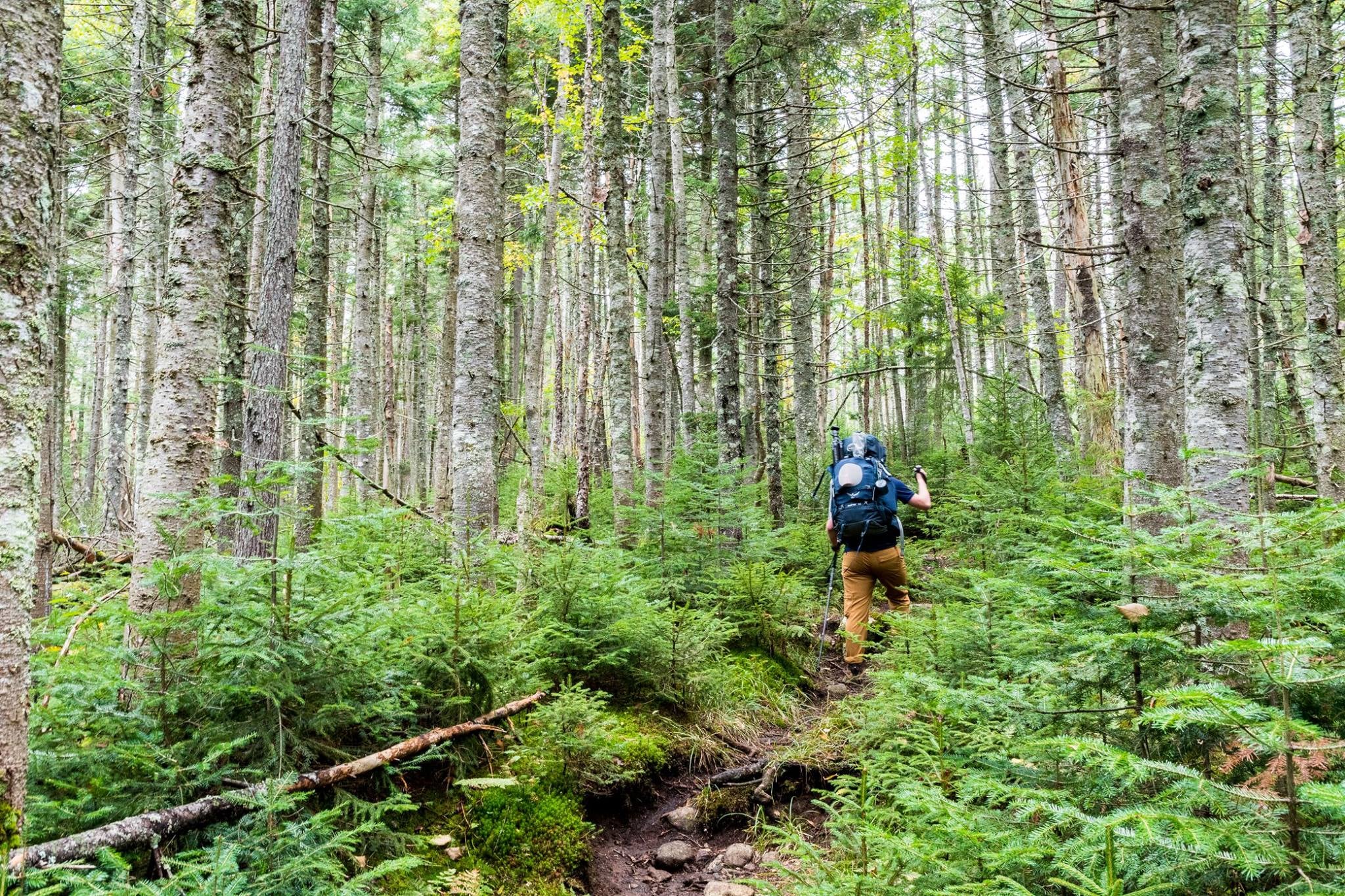Penn State Bans Outing Club From Leading Hikes

'Courtesy of Pennsylvania State University Outing Club'
After 98 years of fostering mountain and river guides, constructing trails, and making new backpackers, Penn State Outing Club has been barred from continuing student-led backpacking and paddling trips.
In a statement, Pennsylvania State University said that, after completing a risk assessment that was prompted by students’ concerns and 15 months trying to transition outdoor-recreation clubs to a safer model, it has decided that its outing club, as well as a caving club and SCUBA diving club all pose an “unacceptable level of risk.”
“The goal was not to eliminate all risk, but to responsibly manage risk so that our students can continue to safely participate in a variety of recreation activities,” Laura Hall, senior director of Campus Recreation, said in that press release.
The university says its assessment looked at the environment and location for the clubs’ activities, access to emergency facilities and medical care, risk associated with the activity, risk associated with the equipment they use, and training and skill levels of the student leaders.
The outing club has restructured to continue hosting speakers, running educational programs, and organizing volunteer work, but that’s the limit. To go backpacking, students will have to book a trip with Campus Recreation’s Outdoor Adventures program, which are led by student employees with a year of training. That same office also rents equipment to backpack, camp, paddle, rock climb, cave, fish, or dive for students to go on their own.
Officers at the Outing Club say they’re losing a middle ground where students can gradually take on leadership roles and develop skills to plan their own trips.
“One of the things that was always really special about the Outing Club is that it’s really a peer-to-peer model,” says Richard Waltz, outing club president. “If you go on an Outdoor Adventures trip, the guides pretty much do everything.”
While Outdoor Adventures participants may not even have to set up their own tents, he says, the Outing Club’s goal has been to prepare students to explore on their own, equipped with experience in planning meals and practicing leave-no-trace principles. They’ve seen members take their skills overseas, with one student who followed her study abroad program in Chile with a backpacking trip in Patagonia.
“What we hope to provide is something that helps create more of a lifelong activity, versus ‘I went ice climbing once so I can post on my Instagram that I did it,’” says Tim Hackett, outgoing club treasurer.
There’s also a substantive price difference. Outing Club members join for $20 annual dues and pay a $5 per-trip fee, which covers food, gear rentals, and transportation. Outdoor Adventures trips can top $100.
Jim Tate, who graduated from Penn State in 1994 and served as a trip leader and club president, says that he watched new Outing Club members go from their first backpacking trip to, three years later, climbing Mount Washington in winter.
“We were reaching a market that maybe wasn’t fully outdoorsy, per se, but was willing to take that risk or make that commitment for just a few bucks and a couple days, and that certainly fostered a lot more growth,” he says. With that change, there’s a loss of hands-on leadership roles for students, he says. That shift comes shortly after the university’s Recreation, Parks, and Tourism Management Department added an Outdoor Experiential Leadership program
Over the past two years, the Outing Club has worked to increase training opportunities for its student leaders and ease oversight. Already, trips required that at least one person certified in wilderness first aid and one person certified in first aid and CPR attend. Trip leaders also submitted paperwork that included plans for how to exit the backcountry in an emergency, GPS coordinates for all campsites, expected trail conditions and weather, and local contact information. Now, the university says the demands of overseeing this club prove burdensome.
A question the students say emerged late in the game is that of alcohol. The university’s official statements also mention “misuse of alcohol in the context of already risky activities.” Club officers say alcohol use was mentioned in their initial conversations with the university and that their trips have never had an alcohol-related incident. Their counter-statement also points to the obvious: the weight and bulk make alcohol less likely to be found in the backcountry than among students who stay in town. Still, they’ve instituted a zero-tolerance policy on alcohol.
Club officers remain hopeful the trips will resume, and with that in mind, they’ll seeking advice about approaches and structure from previous Outing Club members and outing clubs from other universities.
“So the fight’s not over, and I think we’re pretty optimistic,” Hackett says.
Tate points to the obvious: these aren’t kids anymore. They’re over age 18.
“You’re talking about legal adults,” he says. “They can go to war, they can vote, but they can’t go out in the woods? It doesn’t seem to make sense. … If we can send you overseas to fight for our country, I’m pretty sure you’re old enough to learn how to go hiking.”